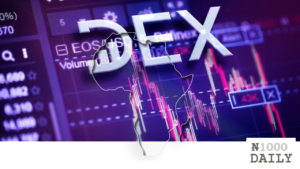What happened to Cryptocurrency today: Are non-custodial exchanges the future of digital currency exchange? Experts ponder its securities and risks.

Many cryptocurrency traders continue to hold huge sums of capital on centralized exchange platforms.
This is against the view that centralized cryptocurrency exchange suffered a whooping hack loss of nearly $30 million in 2019.
With many non-custodial crypto services launching in recent years, some of the platforms have been able to achieve significant liquidity.
Several industry experts have had their take on what non-custodial exchange is and what its imminent future holds in the digital currency market.
Just a tidbit into the news:
What are Non-Custodial Exchanges?
Non-custodial exchanges are Decentralized exchanges (DEXs).
Unlike the centralized exchanges, they are built using decentralized blockchain infrastructure, which supports the core idea of digital currencies.
DEXs allow users to take control of their assets and trade directly from a wallet they control.
Building directly on the blockchain has its limitations which led to the relative unpopularity of decentralized exchanges.
How safe are Non-Custodial Exchanges?
Here are some thoughts by thought leaders in the industry:
Erik Voorhees, CEO of ShapreShift, who spoke to Cointelegraph,
“Noncustodial exchanges provide a fundamentally safer way for individuals to trade digital assets.”
Exchanges are traditionally custodial bearing huge amounts worth billions of dollars. These exchanges are subject to hacks, destroying the exchange and the customers bear the risk of the losses.
However, here are some of Voorhees’ highlighted limitations to the non-custodial exchanges.
First, it has complicated user experience and secondly, it operates in isolation, example is with the Ethereum Blockchain and Ethereum-based tokens.
Voorhees
Jack Tao, Co-founder, and CEO of Phemex,
“It is impossible to determine the safety of non-custodial exchanges over custodial exchanges.
Eventhough they both answer to different traders’ needs. The success recorded by DeXs are as a result of transparency and trust failures of traditional exchanges with their customers.
He, however, pointed out that non-custodial exchanges mean traders are prone to security risks.
“Asset security should be a burden carried by the exchange rather than the user.”
Jack Tao
You can also read about Quras’ Partnership with BNUG